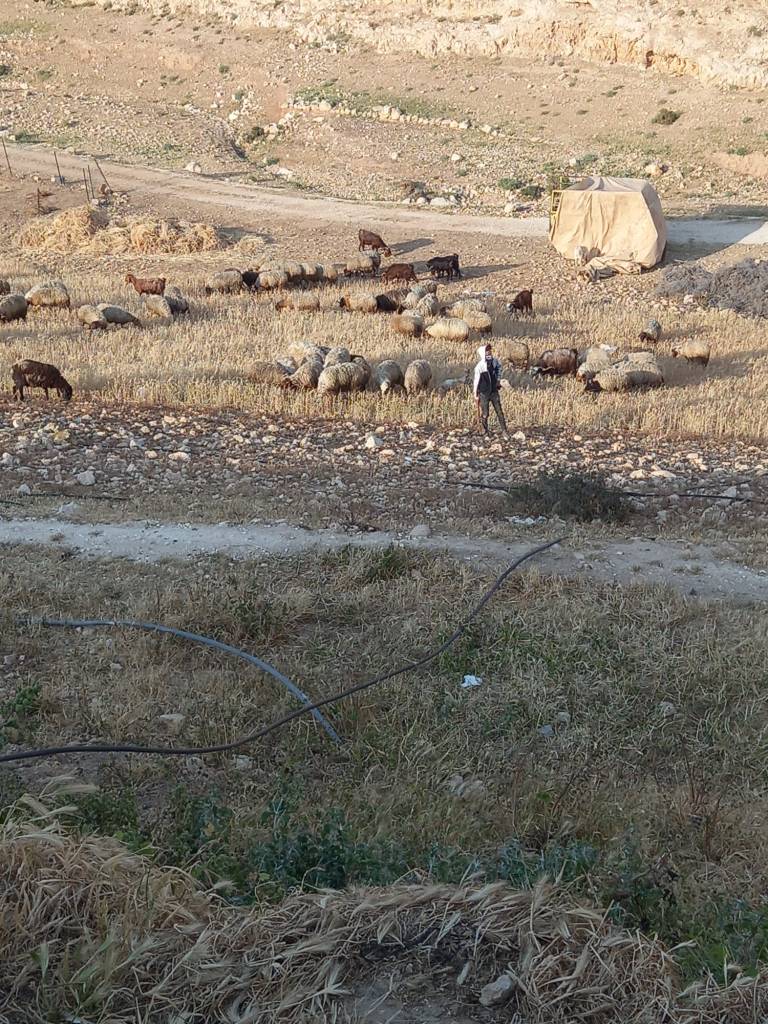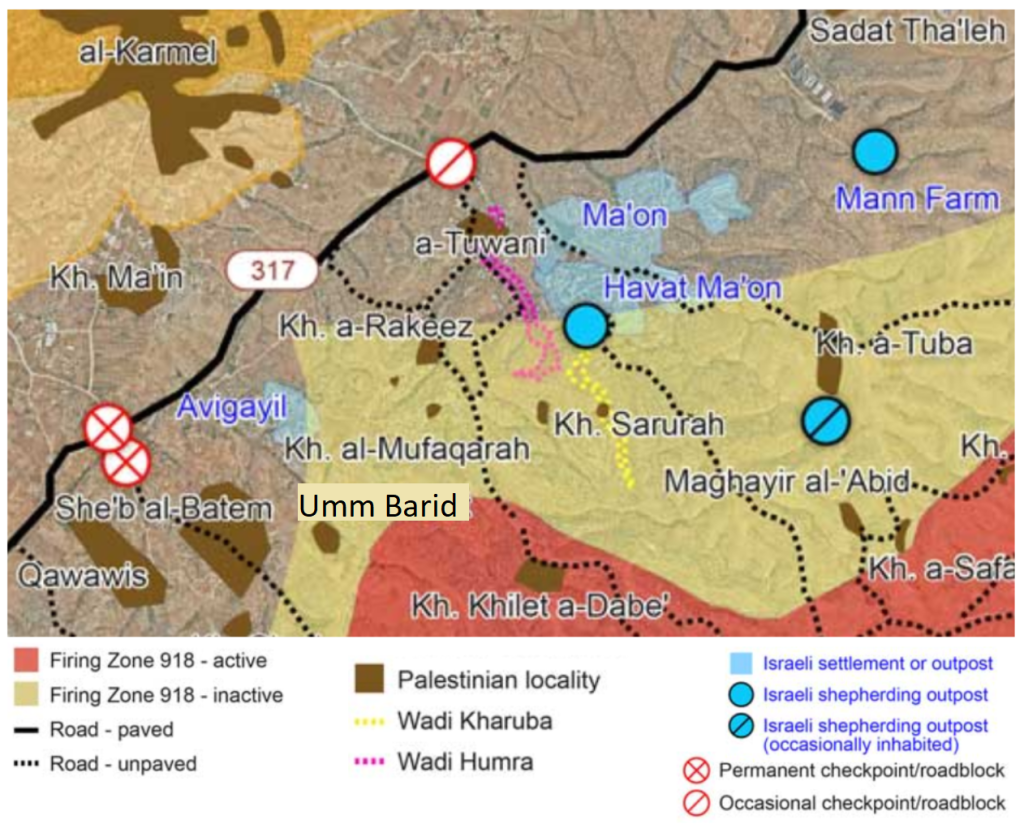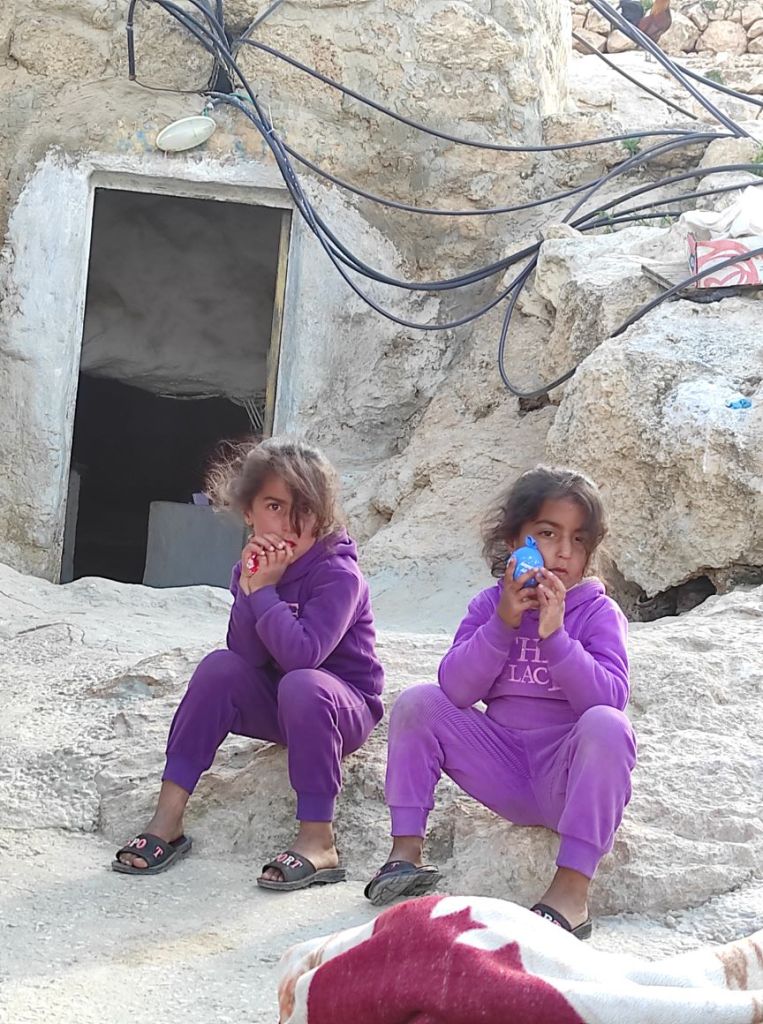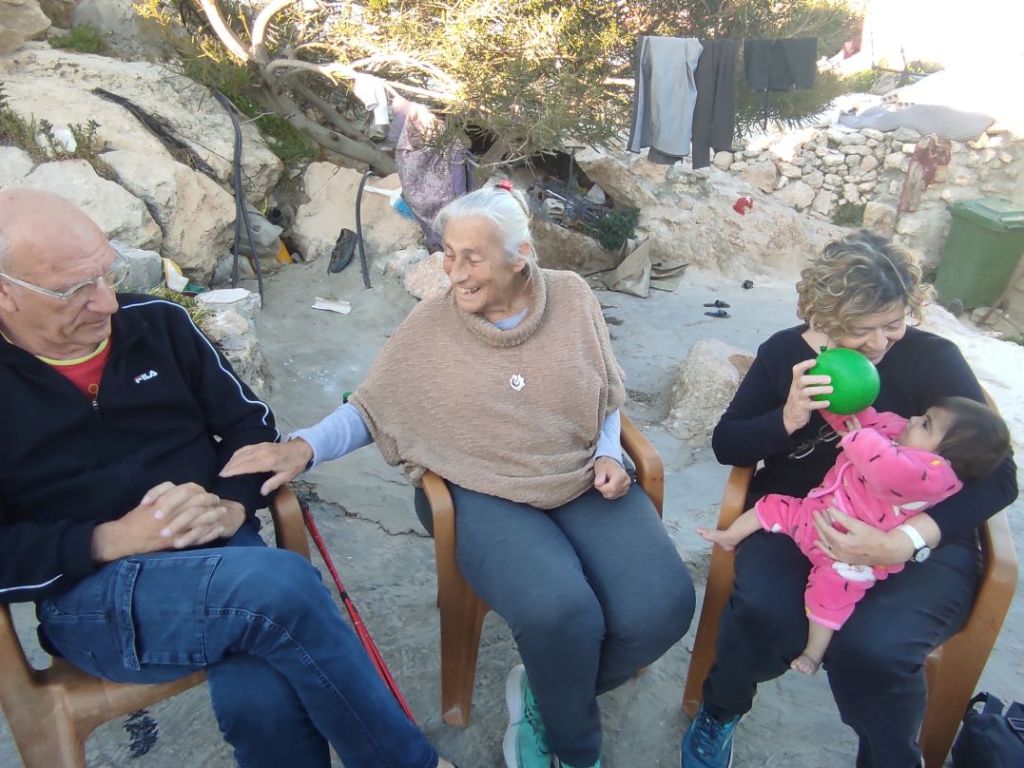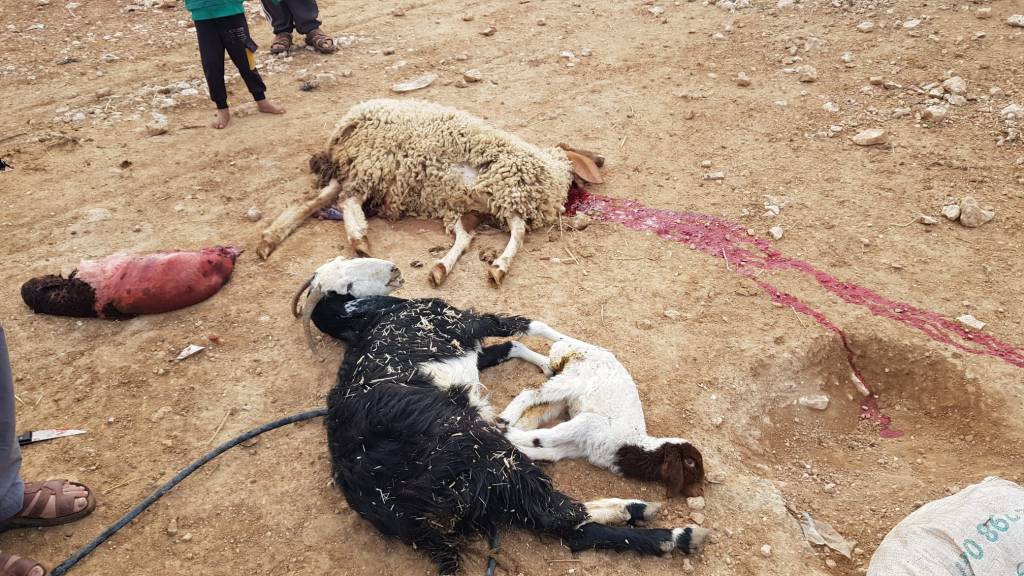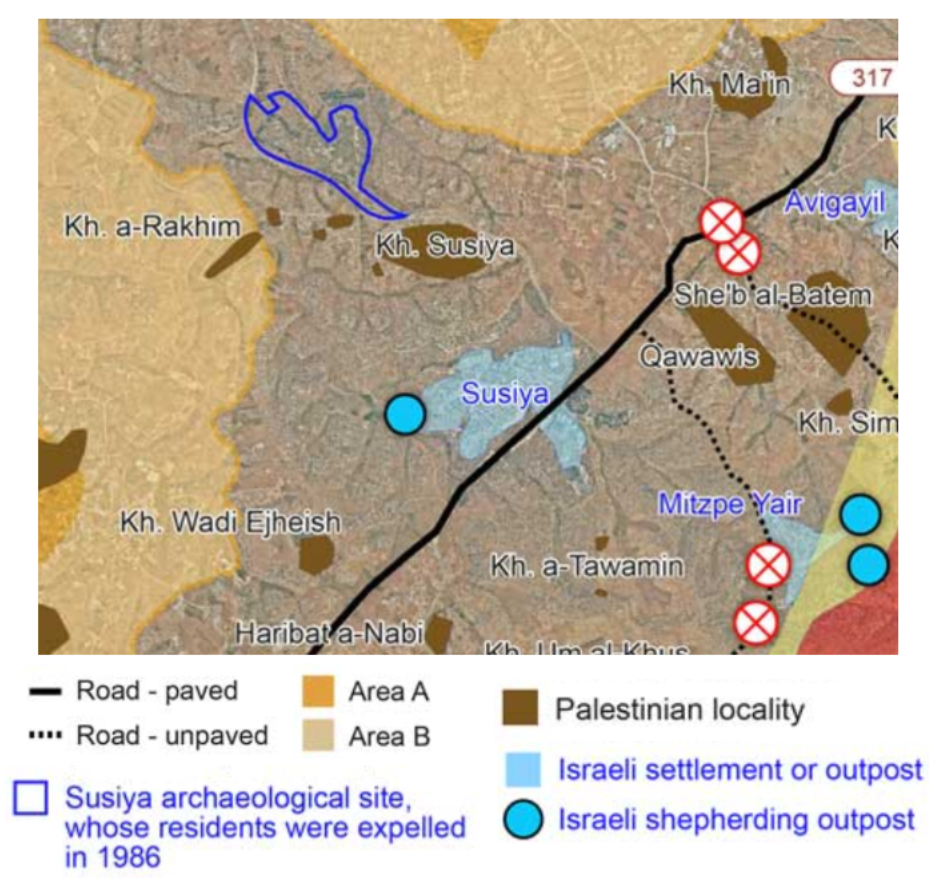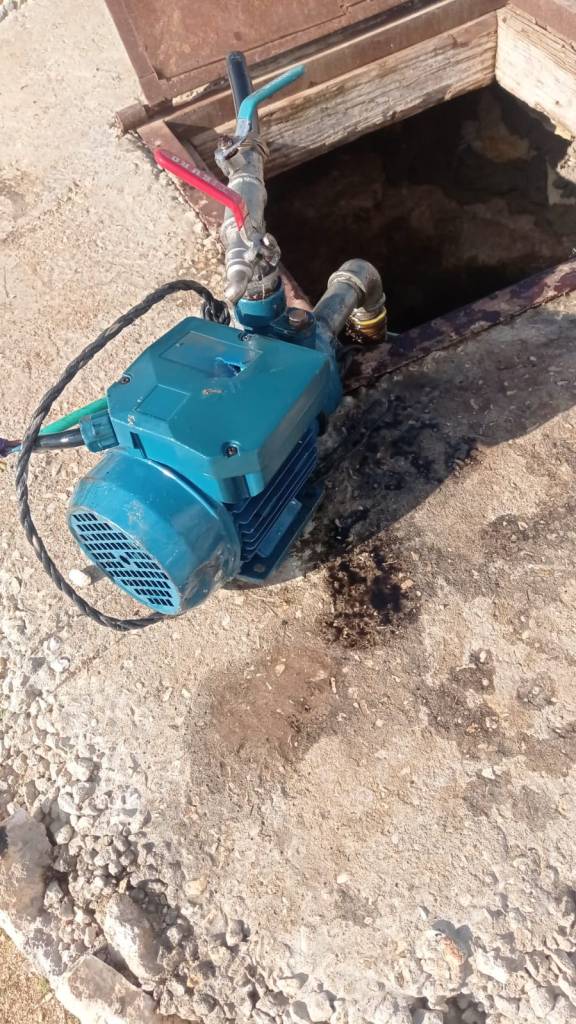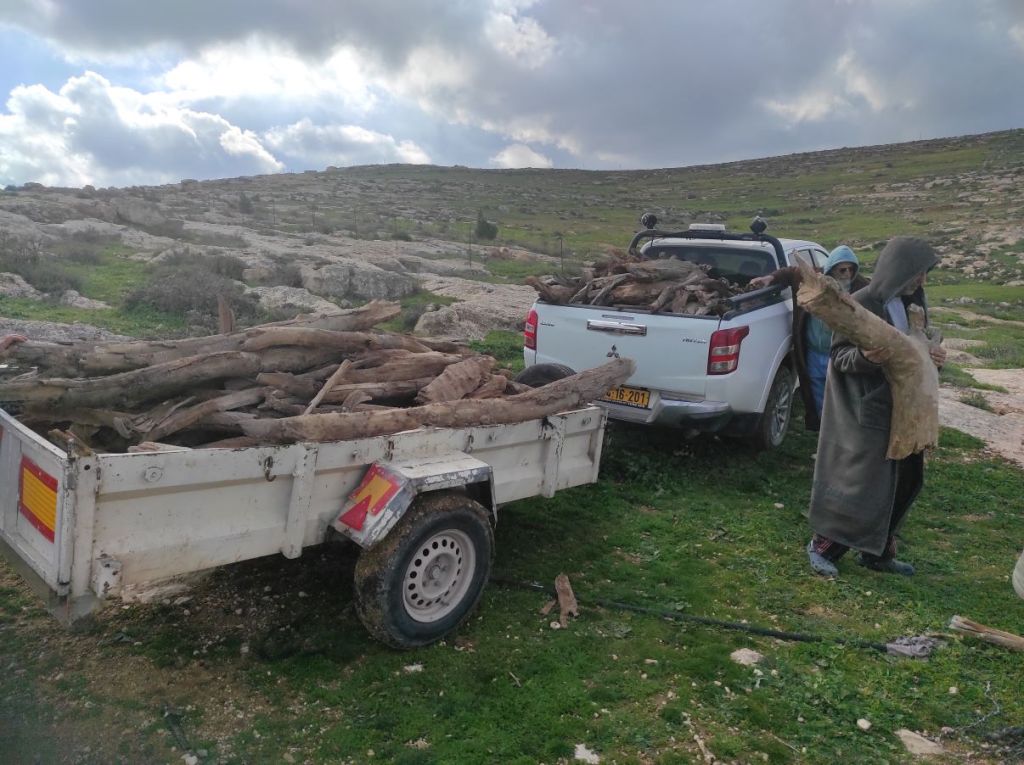The villages where the children reside are marked with crimson rectangles. A-Tuwani where their school is located, is marked with a green rectangle. A larger map of Massafer Yatta can be found here. To see the broader surroundings around Massafer Yatta, go to B’Tselem’s interactive map and zoom towards the very south of the West Bank.

To our friends all,
For seven months now, the children of Tuba and Maghayir al-‘Abeed in Massafer Yatta have very rarely gone to school. Their school is located in in a-Tuwani some 1.5-2 km away, but in the middle there are hostile and violent Israeli settlements.
In 2004, when harassment of these children increased, and under the pressure of peace organizations, a ruling was formulated by the Knesset Committee on Education, that the children would go to school and back, accompanied by the army. In this manner, for nearly 20 years, until war broke out, children walked to their schools accompanied by the military.
At the outbreak of the present war, the army’s accompaniment ceased without any warning, nor any information about its renewal. At the same time, studied ceased for a while all across the West Bank [and most of Israel]. Several weeks later, studies in a-Tuwani were resumed in a partial pattern, 2-3 days a week. (Israel stopped handing over the money it owes routinely to the Palestinian Authority, so teachers’ salaries were reduced up to one-third). The children of a-Tuwani and Susya who go to school at a-Tuwani came back to study part-time, but the children of Tuba and Maghayir al-‘Abeed could not.
Around December dear A., an organizer from Tuba, began to transport the children in his car (the only highway-legal vehicle in his village) assisted by activists’ vehicles, taking a longer, harder roundabout route. But he had to stop because the Palestinian Ministry of Education at Yatta forbade him, fearing that the army would rid itself permanently of its accompaniment assignment. Via the spokesperson for the Israeli military’s Central Command, I found out that as of now, the army will not resume this duty. I forwarded this information to A., who forwarded it to the Ministry office at Yatta. The head of that office continued to insist, on the ban, because this would be grounds for the army not to return. In the meantime, I try to convince the children of these two villages to study in two alternate schools deeper into Massafer Yatta and away from settlements: the high school at Fakhit and the elementary school at Safai, a walking distance away. Middle-schoolers and high-schoolers would also walk to Safai, and from there a vehicle provided by the PA would take them to Fakhit.
But the high school children do not want to change schools, whereas the elementary school children are not allowed by their parents to walk to Safai, for fear that the settlers would find them on the way there too. The head of the Palestinian Education Ministry at Yatta still refused to let A. transport the children to a-Tuwani, even only the middle-schoolers and high-schoolers , five of them all in all.

Children in Tuba, April 16
H., our close friend from Hebron, knows the regional head of the education department personally, and arranges a meeting in order to convince him to be flexible, because the army will not return to its accompaniment duties in the foreseeable future. After this meeting, H. reports to me that the refusal is still in full force. I advise H. to try again, insisting that according to international law, every child has the right to go to school. H. gets back to the department head, and he finally agrees.
A. receives the happy news from me that very evening. The children are excited. The next day, A. cannot drive them – he is the only driver with a highway-legal car in the village, and a critical patient must get to the hospital. A. shares with me the fact that he would not be able to take the children consistently. One time someone is ill, another time he must drive residents to lodge a complaint (all this time, settlers harass the villagers of Tuba and Maghayir al-‘Abeed), and in general – since the children study only 2-3 days a week…
I feel that I’m becoming a nag, having pressured poor A. over the school issue again and again, and finally, during our umpteenth nightly call, I let go. I understand the pressure under which young A. has to function, and say to him: “My dear man, I realize your situation. You bear a disproportionate amount of responsibility. I am only sorry for the children. They want so much to get back to school and see those classmates who have already come back. But let us let go and pray that the next school year will bring a new reality, Inshallah.” The next day, A. called me: “I am taking the children to school. True, children must go to school. I’ll do my best.”
On the morning of Sunday, April 21st, three girls and two boys festively prepare their school outfit and rise on , to reach the school which they have missed for 4 months. A call from A. stops them before leaving: the Israeli army killed 10 Palestinians in Tulkarem. A general strike has been declared throughout the West Bank.
In the evening, the children prepare their clothes again, and get up excited the next morning to go to school. On Monday morning a call from A. holds them back again: the Jews’ Passover holiday has caused the army to close off all passage to and from Yatta, and the teachers cannot get to school.
In the evening, with the determination of children refusing to give in, they prepare their clothes again. Perhaps tomorrow? In the morning they are excited again. At noon on Tuesday the 23rd, I met them at a-Tuwani. They finished a day of school. A. Waited for them at the center of the village in order to bring them home. In fact it was another day of total closure [due to Passover], but A. who spoke with the teachers in the morning said the teachers recommended they begin to walk and he would pick them up on their way to school, and so he did. A. the wizard.
And I – when I saw the children and their happy smiles and enjoyed their warm hugs, I was flooded with their deep gratitude flowing to me, to A., to the world; although they have so little, it seems to them that the whole world is theirs, and seeing this I need no further words…
Erella, on behalf of the Villages Group


